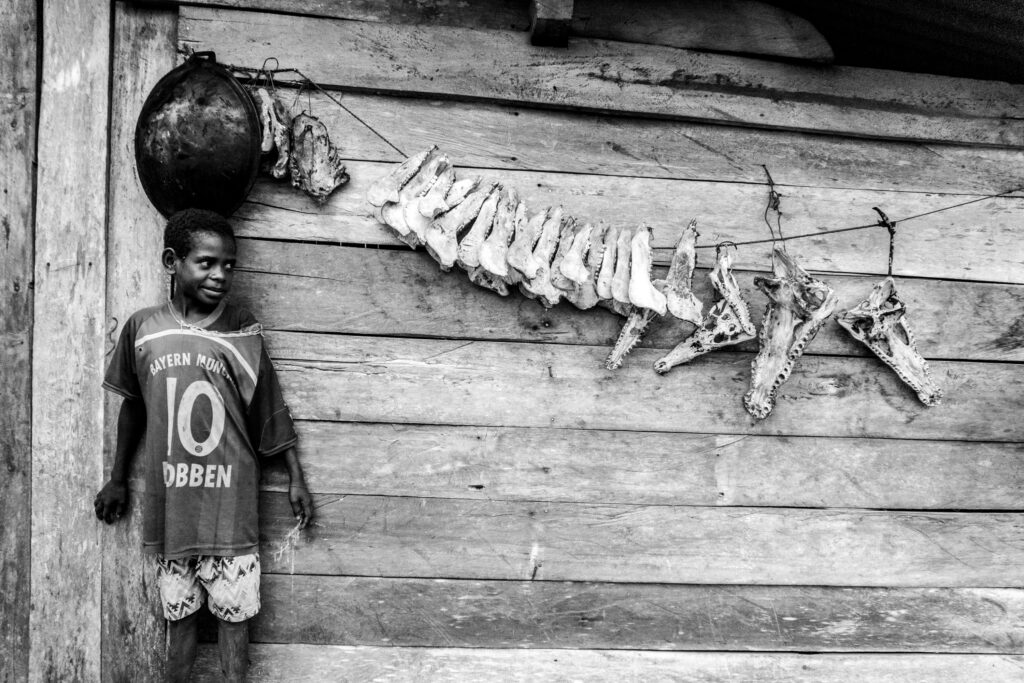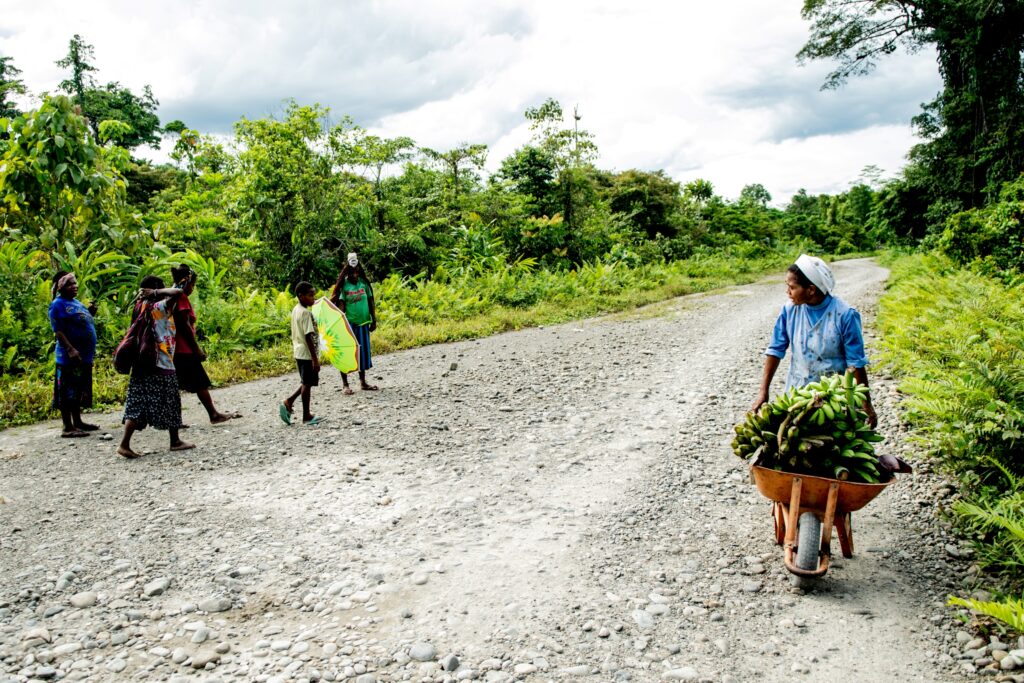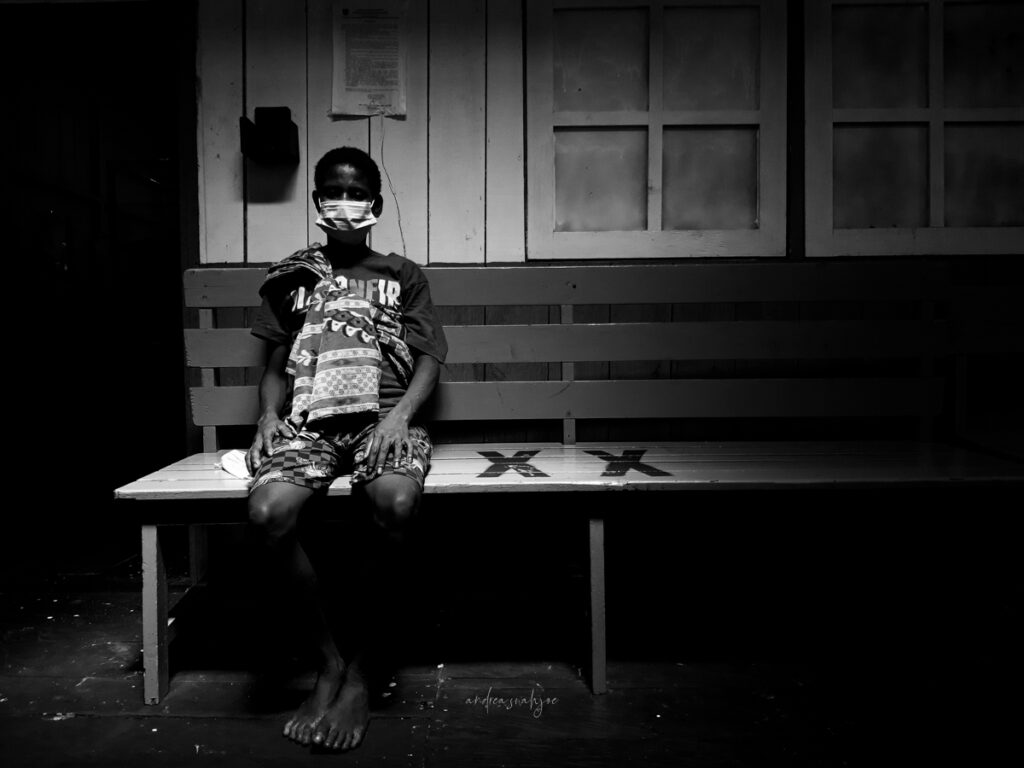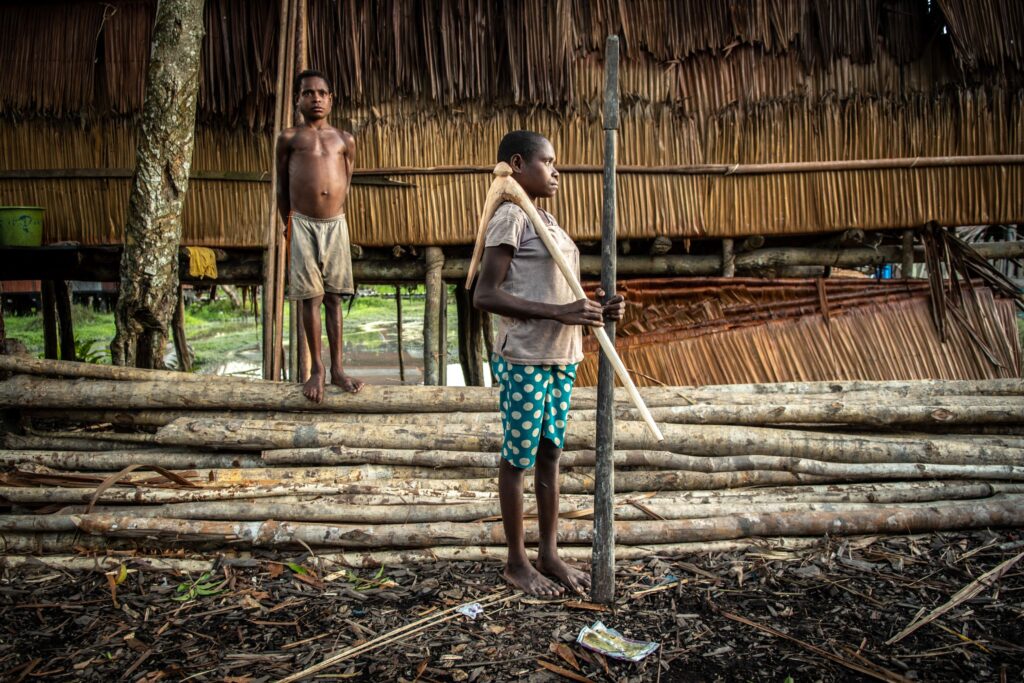Esmapano

Andreas Wahyu, Andreas Wahjoe, Papua, West Papua, Asmat, Asmat Indigenous People, photo story,
The Frontier Nuns

The Frontier Nuns In 2016, four sisters from the Congregation of The Daughters of Our Lady Queen of the Holy Rosary (PRR) received a high-risk assignment in Mumugu Batas Batu, a remote area in the parish of Christ Amore – Sawa Erma, Diocese of Agats. They were sent to minister to lepers in need of care and assistance. Mumugu Batas Batu, located almost 200 km from the center of the Asmat Regency in Agats, is one of the outermost areas of the diocese. Since the discovery of the leprosy case, the Reinha Rosari Sisters became the first team to serve this disease in Asmat Regency. With extraordinary dedication and courage, they have treated leprosy patients in this region. They also teach children and guide the community in learning gardening to improve welfare and food security. However, the situation became more complicated when the conflict between Papuan independence fighters and the TNI intensified in the Kenyam region. Mumugu Batas Batu is a tense area, the gateway to military operations in Nduga. Refugees from the conflict areas come to the outskirts of Batas Batas Mumugu in search of a safe place. This strategic location also made Mumugu Batas Batu a target for freedom fighter groups due to the presence of the TNI POS. Despite the growing threat of conflict and violence, the spirit of service of the PRR sisters has never waned. They face great risks every day, but remain faithful to their mission: caring for lepers, teaching children, and helping local communities survive and thrive in difficult situations. The life story of the sisters in Mumugu Batas Batu not only attracts attention, but also becomes an inspiration. They provide medical care, hope and compassion to those in need. In situations of uncertainty and danger, they bring light and comfort to the marginalized. The experience of the sisters in Mumugu Batas Batu is a reflection of courage and selfless sacrifice. They show that in the midst of uncertainty and danger, love and service to others remain a primary concern.
SURV!VE

SURV!VE Mama Rafina sells vegetables on the street in Agats city. She is one of the ART therapy patients at the Agats General Hospital. She has been undergoing therapy for over two years. She contracted HIV from her husband, who passed away two years ago. She lives with her two young children in a small hut on the outskirts of Agats. It is not easy for her to survive as a gatherer in the city. It’s also hard for her to live in her home village in Sawa Erma. When she gets sick and needs to go to the hospital, she has to leave before her treatment is finished. “I can’t leave my kids alone; they’re too young,” she said. Mama Rafina still needs support during her ART therapy. “I know I’m sick. It came from my husband. That’s why I have to take medicine every day.” If I forget to take my medicine, I feel sick and have diarrhea. I feel like I’m dying and have to go to the hospital. But I always remember my children. I have to keep living. In Asmat Regency alone, more than 200 people are living with HIV. This is the recorded number, but it could be higher. There are many hard-to-reach areas and limited healthcare facilities in the interior. In Indonesia, Papua is one of the provinces with the highest number of HIV cases. AIDS, TB, and malaria remain significant problems that have not been resolved. The main way HIV is spread in Papua is through sex, both within and outside of marriage. There are still many places in Agats city where prostitution is common, and these are some of the highest-risk places for HIV transmission.
Food War

Food War Gastrocolonialism is a term that refers to the dominance of colonial culture reflected in the daily aspects of a society, including eating patterns and food consumption. In the context of the Asmat tribe, this concept is relevant due to the strong influence of Western culture that has affected their traditional eating habits. Before the arrival of colonizers, the Asmat people lived as hunters and gatherers in the rich forests of Papua abundant with natural resources. They relied on sago, fish, shrimp, and other local natural resources as their staple foods. However, with the advent of colonialism and global trade, external foods such as rice, sugar, flour, and canned foods began to be introduced to them. The introduction of these new foods not only changed their dietary patterns physically but also had profound cultural impacts. This threatens the sustainability of their local culture and the overall physical and mental health of the Asmat community. Gastrocolonialism among the Asmat highlights the challenge of maintaining local food traditions while facing pressures of globalization and socio-economic changes associated with modern colonialism. The waves of modernization and globalization bring new challenges to the Asmat tribe. Instant foods like instant noodles, which are easy to obtain and relatively cheap, replace the younger generation’s interest in their healthier and balanced traditional foods such as sago, fish, and shrimp. This phenomenon not only affects food preferences but also the health of Asmat children. Overconsumption of instant foods often leads to stunting and nutritional problems, posing a serious threat to future generations. Efforts to educate parents about the importance of maintaining traditional dietary patterns often face challenges. Temptations from instant foods promoted in local kiosks and government assistance that does not always consider long-term impacts are hindering factors. Can the Asmat tribe maintain their food traditions amidst these waves of modernization?
